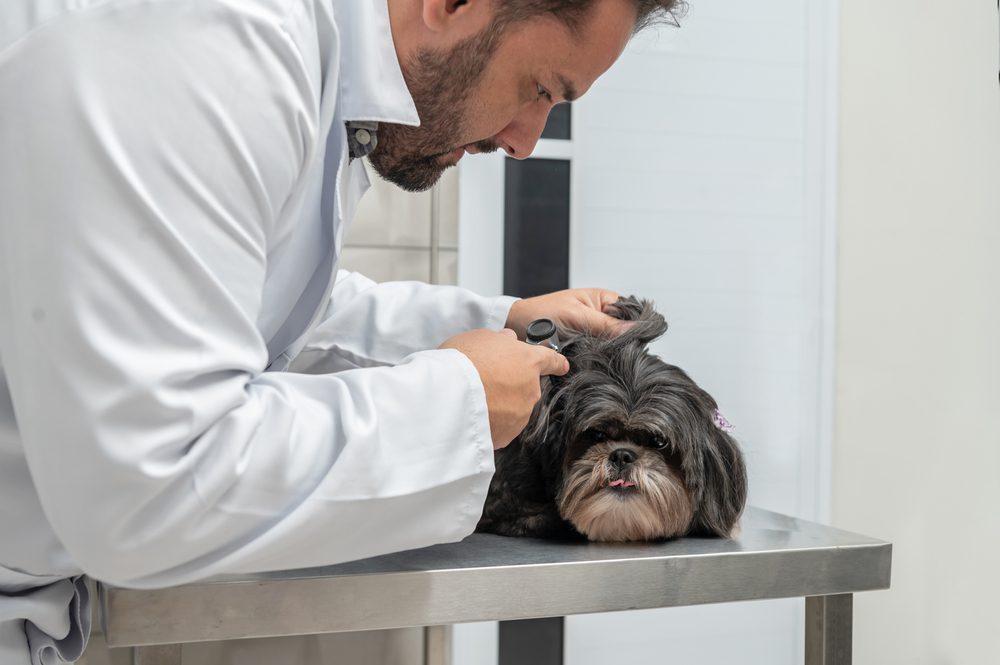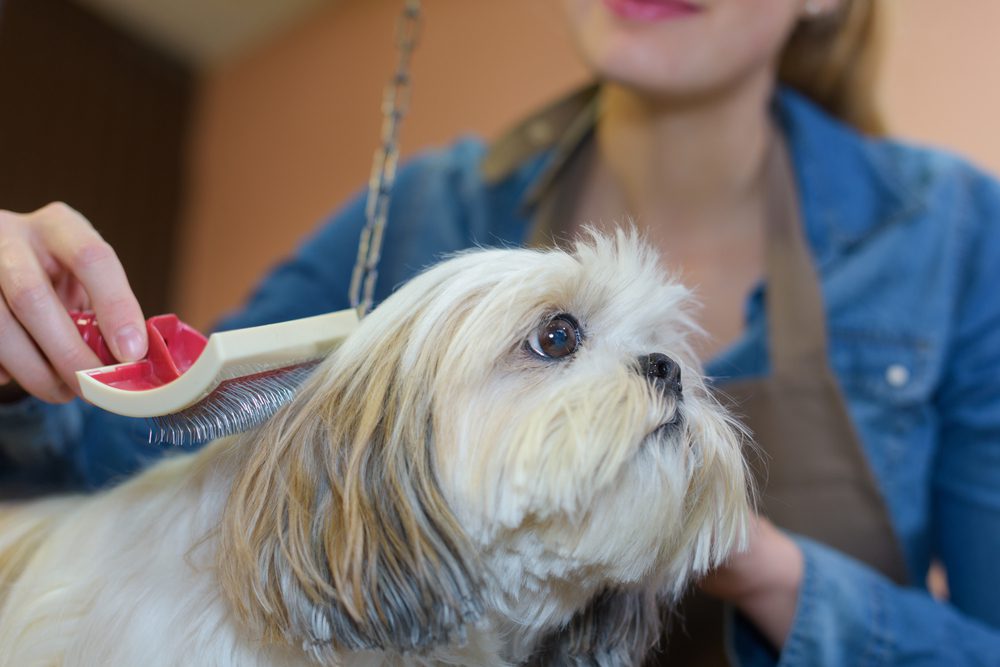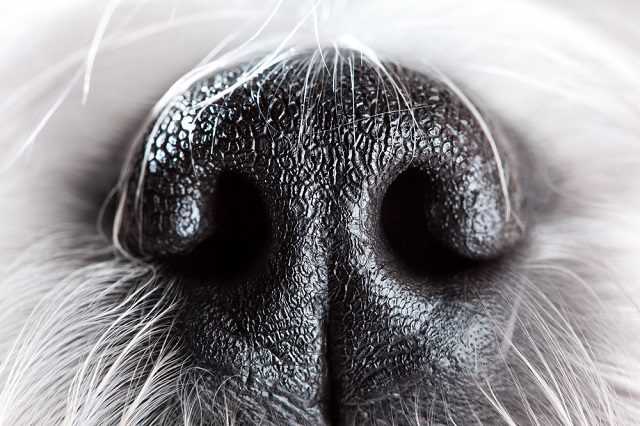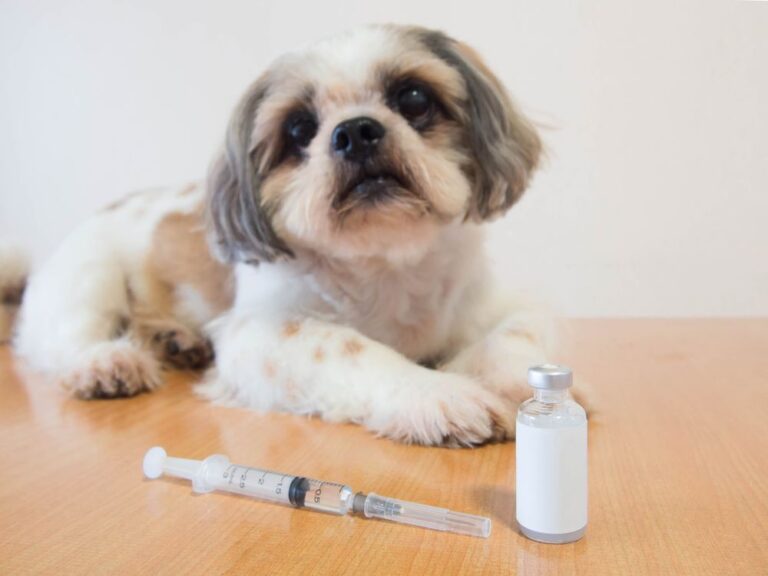Why Does Shih Tzu Scratching A Lot: How To Help Them Stop?
One common problem that Shih Tzu owners may encounter is their dog scratching a lot. It can be a frustrating and annoying problem, and excessive scratching can lead to skin irritation and even infection if the skin becomes damaged.
Whether your Shih Tzu is scratching due to fleas, allergies, or boredom, you can alleviate the problem and ensure that your dog is comfortable and happy.
In this article, we will explore the various reasons why Shih Tzu scratches a lot and provide some tips and techniques for helping your furry friend stop scratching.
11 Reasons Why Shih Tzu Scratching a Lot
There are several reasons why Shih Tzu scratches a lot. The most common causes are:
1. Itchy Skin
The most common reason for Shih Tzu scratching is itchy skin. There are a variety of things that can cause itchy skin in dogs, including allergies, parasites, and infections.
2. Allergies
Allergies are a common cause of itching and scratching in Shih Tzus. If your dog is allergic to pollen or dust, it may itch and scratch more frequently. Certain foods or medications can also cause allergies.
3. Parasites
Parasites like fleas and ticks can cause your Shih Tzu to scratch more than usual. These parasites can not only cause itchiness, but they can also transmit diseases to your dog.
4. Bacteria
Bacteria can also cause skin infections that lead to itching and scratching. If your Shih Tzu has a bacterial infection, it will likely need antibiotics to clear the infection.
5. Infections

Bacterial and fungal infections can also cause your Shih Tzu to scratch excessively. These infections can occur on the skin or ears and can often be treated with antibiotics or antifungal medications.
6. Dry Skin
Various things, including weather changes, lack of humidity, and certain medical conditions, can cause dry skin. If your Shih Tzu has dry skin, you can help them by using a humidifier in their environment or using a moisturizing shampoo prescribed by your veterinarian.
7. Hot Spots
Hot spots are open wounds that are often caused by allergies or infections. If your Shih Tzu has a hot spot, it’s essential to take them to the vet for treatment as soon as possible, as hot spots can quickly become infected if they’re not correctly cared for.
8. Anxiety

Shih Tzus can suffer from anxiety for various reasons, including separation anxiety, fear of loud noises, and even general stress, which can result in excessive licking and scratching.
Related: Shih Tzu Anxiety: How To Deal With It?
9. Boredom
If your Shih Tzu needs more to do throughout the day, they may start scratching simply out of boredom. To help combat boredom-related scratching, give your dog plenty of toys and playtime each day.
10. Pain
Dogs may start scratching if they are in pain due to an injury or illness. If you think your dog’s scratching may be due to pain, take them to the vet to examine them properly.
11. Hormonal Imbalances
Hormonal imbalances can also cause itching and scratching in dogs. If your dog has a hormonal imbalance, it may need medication. Your veterinarian will be able to prescribe the appropriate remedy for your dog based on the severity of the imbalance.
How to Help Shih Tzus Stop Scratching?
While it’s normal for dogs to scratch themselves occasionally, excessive scratching can indicate an underlying skin condition. If your Shih Tzu is scratching more than usual, there are a few things you can do to help relieve their itchiness:
1. Invest in a Good Shampoo
Investing in a good shampoo is one of the best ways to help your Shih Tzu stop scratching. Look for a shampoo that is designed for dogs with sensitive skin. Avoid shampoos that contain harsh chemicals, which can further irritate your dog’s skin.
Our Recommendations
2. Use a Moisturizing Conditioner
After shampooing your Shih Tzu, be sure to use a moisturizing conditioner. It will help hydrate your dog’s skin and coat, reducing itching and scratching.
3. Brush Your Shih Tzu’s Coat Regularly

Another way to reduce itching and scratching is to brush your Shih Tzu coat regularly. It will help to remove any dirt, debris, or mats that may be causing your dog discomfort. Use a soft-bristled brush to avoid further irritating your dog’s skin.
4. Give Your Shih Tzu Regular Baths
Giving your Shih Tzu regular baths is crucial in preventing itching and scratching. When bathing your dog, use lukewarm water and avoid using any harsh soaps or shampoos. After the bath, thoroughly dry your dog’s coat and skin to prevent further irritation.
5. Keep Your Shih Tzu Well-Groomed
Keeping your Shih Tzu well-groomed is another important way to reduce itching and scratching. It means brushing your dog’s teeth regularly, trimming their nails, and cleaning their ears regularly. By keeping your dog well-groomed, you can help prevent any irritation or discomfort that may be causing them to scratch.
6. Provide Your Shih Tzu with Plenty of Exercises
Exercise helps to release endorphins, which can help to improve mood and reduce stress levels. Additionally, exercise can help to keep the skin healthy by increasing blood flow and promoting cell turnover. So, take your Shih Tzu for a short and sweet walk to avoid scratching.
7. Reduce Your Shih Tzu’s Stress Levels
If your Shih Tzu is stressed, this can lead to excessive scratching. Therefore, you must do what you can to reduce your dog’s stress levels. It may include providing plenty of exercises, playing with them daily, and training them using positive reinforcement.
8. Keep Your Shih Tzu Cool in the Summertime
One common trigger for excessive scratching is heat intolerance. If your Shih Tzu begins scratching more during the summer months, it is vital to take steps to keep them cool. It may include keeping them indoors during the hottest hours of the day, ensuring they have access to fresh water at all times, and avoiding strenuous exercise in hot weather.
9. Take a look at your Shih Tzu’s Diet
A healthy diet is essential for all dogs but can be especially helpful for those with skin conditions. Be sure to give your Shih Tzu plenty of fresh fruits and vegetables and some fatty acids like omega-3s. You should also talk to your vet about switching to a hypoallergenic food or one that is specifically designed for dogs with sensitive skin.
10. Talk to the veterinarian
If you’ve tried all these things and your Shih Tzu’s scratching persists, it’s time to talk to your vet. They will be able to diagnose the underlying cause of the itching and recommend the best course of treatment.
Conclusion
If your Shih Tzu is scratching a lot, you can do a few things to help. First, ensure they aren’t getting bit by fleas or ticks – if they are, address that issue immediately. You may also want to try changing diet or using an anti-itch shampoo or cream. Finally, if the scratching is terrible, you may want to talk to your veterinarian about other potential solutions. Remember, it’s essential to consult with your vet before trying any new treatment plan for your dog. Has your Shih Tzu ever scratched excessively? What solutions worked best for you? Share with other owners in the comments below!
FAQ’s
Why is my Shih Tzu scratching so much?
Your Shih Tzu could be scratching for many reasons, like allergies, fleas, dry skin, or stress. It’s like when you have an itch; there could be many reasons why it’s happening.
Can I stop the scratching at home?
Yes, sometimes! Giving baths with gentle shampoo, using flea control, and ensuring a stress-free environment can help. It’s similar to putting on a band-aid for a small cut but seeing a doctor for a big wound.
When should I worry about the scratching?
If your Shih Tzu scratches so much that it loses fur, bleeds, or seems unhappy, it’s time to visit the vet. Imagine if you had an itch that made it hard to sleep or eat; you’d seek help, right?
What foods can cause allergies in Shih Tzus?
Some Shih Tzus are allergic to beef, dairy, wheat, or chicken. It’s like how some people can’t eat peanuts or dairy without feeling sick.
Can changing my Shih Tzu’s diet help with scratching?
Absolutely! Just like people feel better when they eat the right foods, Shih Tzus can, too. A diet change, especially to hypoallergenic food, can make a big difference. It’s worth a chat with your vet.










